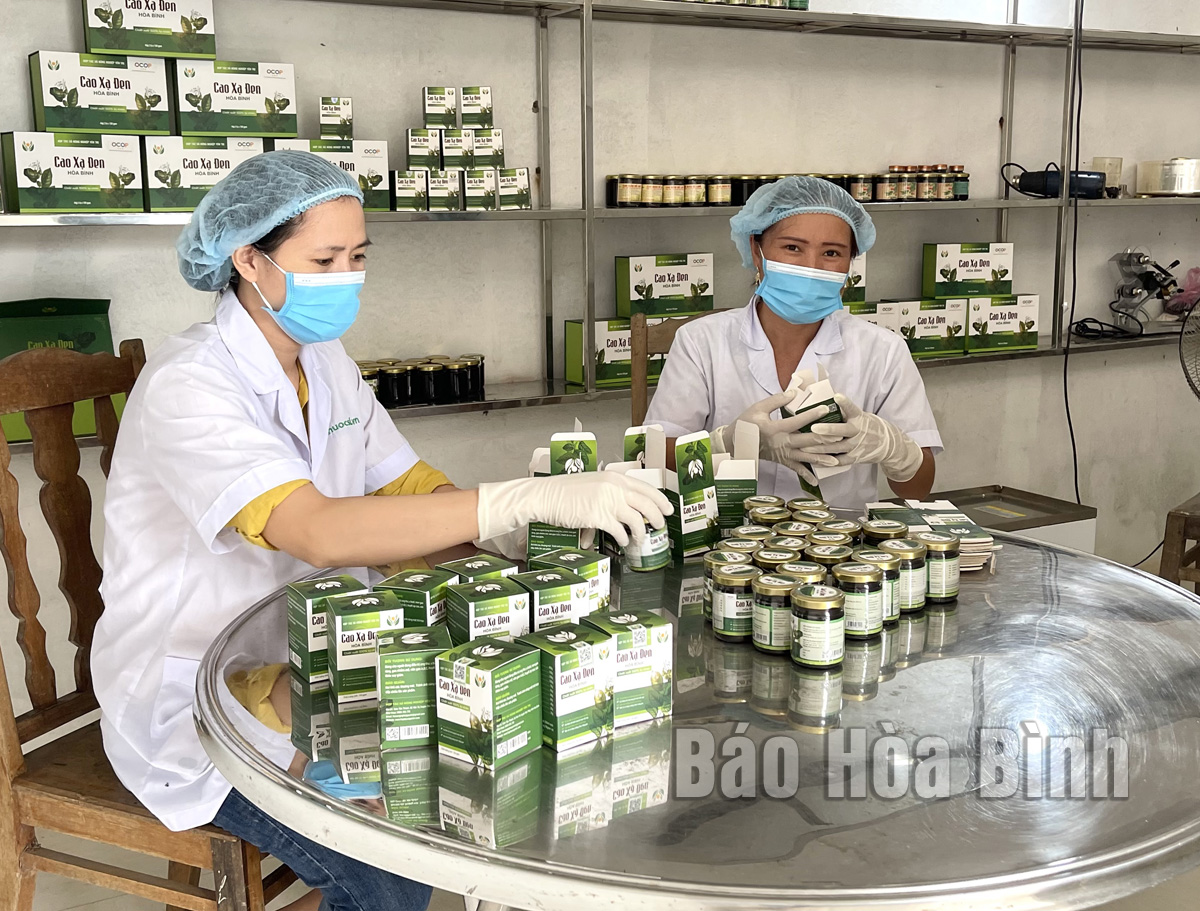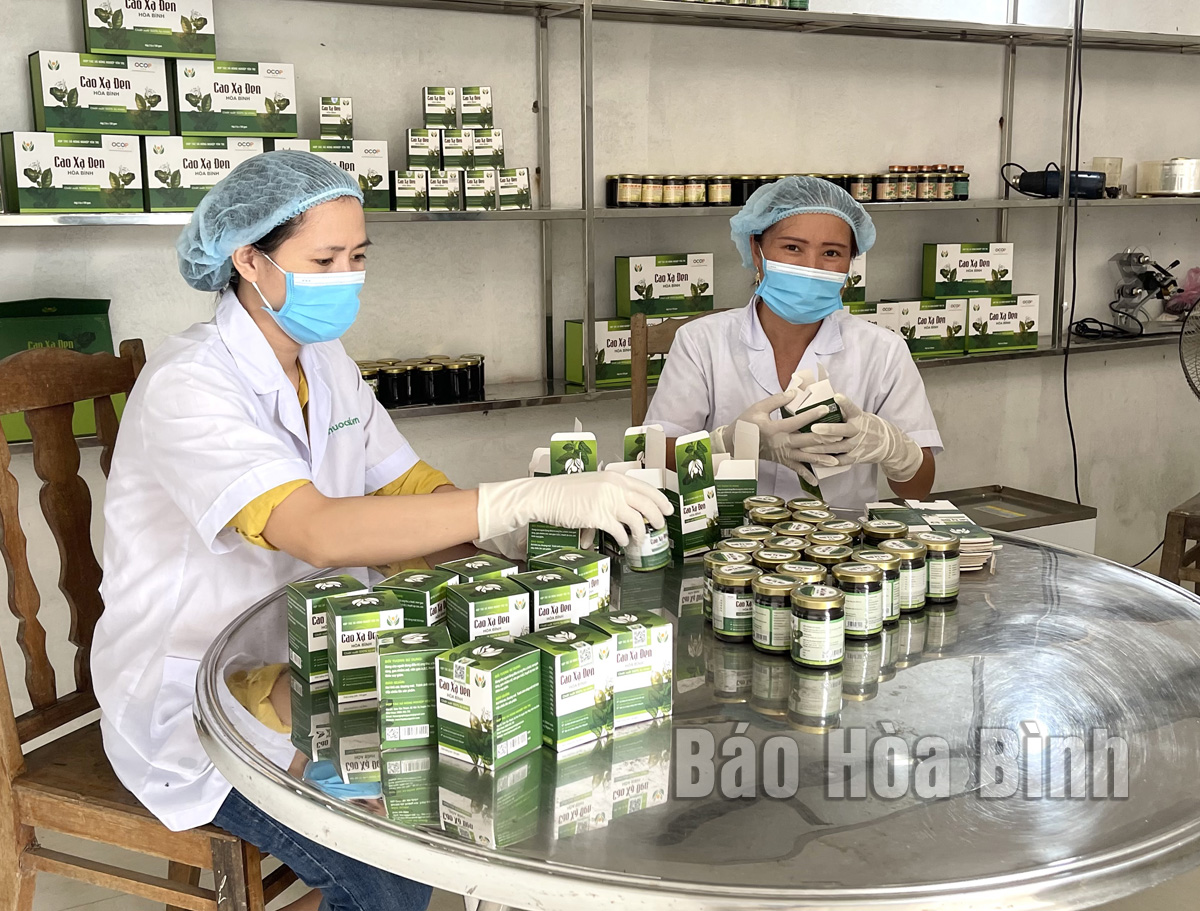
(HBO) – Xa den, a plant scientifically named Celastrus hindsii Benth, is used to treat a number of liver diseases and inflammation, detoxify the body, prevent cancer, and aid cancer treatment. The Yen Tri Agricultural Cooperative in Yen Thuy district has formed a business based on concentrates made from the herb, with their product recognised as a three-star OCOP (One Commune, One Product) goods at the provincial level.

The cooperative’s Xa den concentrate has been recognised as
a three-star OCOP goods at provincial level.
In modern medicine, the concentrate is used to support the
elimination of tumors and the treatment of hepatitis, among others. Aiming to offer consumers best products possible, the
cooperative has been operating a standardised production process to ensure
quality and food safety.
Each 100gr of the traditional medicine is equivalent to 1.5
kg of dried xa den. The black-coloured product with a typical aroma dissolves
quickly in water and is very consumer friendly, with its container being
compact.
The cooperative has also worked to encourage and help local
households to cultivate the valuable herb. The Celastrus hindsii Benth product
has thus far brought about a stable output, helping to improve the lives of
farmers.
Bui Phi Nam, director of the Yen Tri cooperative, said the
business targets sustainable growth and becoming a leading brand of Celastrus
hindsii Benth concentrate in Vietnam. "We are committed to delivering best products and
services to customers," he added.
Each of its 100gr box is sold for 250,000 VND. From the
beginning of the year, the cooperative has sold over 1,000 boxes in Hoa Binh
and many other localities nationwide, including Ho Chi Minh City, Binh Duong,
Gia Lai, Binh Dinh, and Quang Ninh./.
According to data from the Hoa Binh Provincial Party Committee, the industrial production index for the first six months of 2025 is estimated to have increased by 20% compared to the same period last year. This marks the highest year-on-year growth rate for this period since 2020.
In the first six months of 2025, Hoa Binh province’s export turnover was estimated at 1.145 billion USD, marking an 18.11% increase compared to the same period in 2024. Import turnover was estimated at $ 804 million, a 17.15% increase, which helped the province maintain a positive trade balance.
The lives of the ethnic minority farmers in Tan Lac district have gradually improved thanks to the new directions in agricultural production. This is a testament to the collective strength fostered through the professional associations and groups implemented by various levels of the district’s Farmers’ Union.
With the motto the "product quality comes first,” after nearly one year of establishment and operation, Muong village’s Clean Food Agricultural and Commercial Cooperative, located in Cau Hamlet, Hung Son Commune (Kim Boi district), has launched reputable, high-quality agricultural products to the market that are well-received by consumers. The products such as Muong village’s pork sausage, salt-cured chicken, and salt-cured pork hocks have gradually carved out a place in the market and they are on the path to obtaining the OCOP certification.
In the past, the phrase "bumper harvest, rock-bottom prices" was a familiar refrain for Vietnamese farmers engaged in fragmented, small-scale agriculture. But today, a new spirit is emerging across rural areas of Hoa Binh province - one of collaboration, organisation, and collective economic models that provide a stable foundation for production.
Maintaining growing area codes and packing facility codes in accordance with regulations is a mandatory requirement for agricultural products to be eligible for export. Recently, the Department of Agriculture and Environment of Hoa Binh province has intensified technical supervision of designated farming areas and packing facilities to safeguard the "green passport" that enables its products to access international markets.



